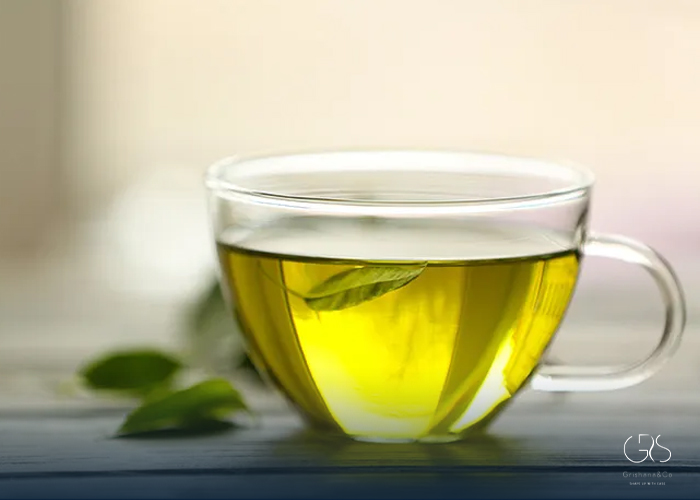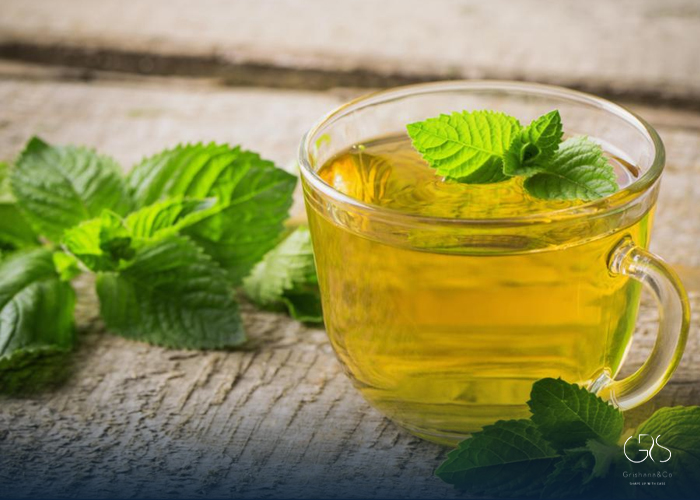Tea has been consumed for centuries as a refreshing and invigorating beverage. Beyond its delightful taste, tea offers several health benefits, including potential weight loss effects. Incorporating certain types of tea into your daily routine may support your weight loss journey while providing various additional health advantages. In this article, we will explore seven types of teas that have been associated with weight loss and discuss the relevant statistics and diverse perspectives surrounding their efficacy.
1. Green Tea
Green tea is one of the most well-known teas associated with weight loss. It contains catechins, a type of antioxidant that has been linked to fat-burning properties. One study conducted in 2010 found that green tea extract significantly increased metabolism and fat oxidation, leading to potential weight loss.
Additionally, green tea has increased satiety, making you feel fuller for longer periods, which may help reduce overall calorie intake throughout the day. However, it is essential to note that the weight loss effects of green tea may vary among individuals.
(Read more about the benefits of green tea.)

2. Oolong Tea
Oolong tea is a traditional Chinese tea that lies between green and black tea in terms of oxidation levels. It has shown promise in weight management due to its potential to increase metabolism and fat burning, similar to green tea. A study conducted with overweight and obese subjects found that oolong tea consumption enhanced fat oxidation by 12% .
The mechanism behind oolong tea’s weight loss effects is believed to be related to its high content of polyphenols, which aid in burning fat. However, it is important to note that long-term studies are still required to fully understand the impact of oolong tea on weight loss.
3. Pu-erh Tea
Pu-erh tea is a fermented tea that originates from China. It has been associated with various health benefits, including potential weight loss effects. A study conducted with obese subjects found that those who consumed Pu-erh tea experienced significant reductions in body weight and BMI.
The fermentation process of Pu-erh tea is believed to create unique bioactive compounds that promote weight loss. Further research is needed to explore the specific mechanisms and long-term effects of Pu-erh tea on weight management.
4. White Tea
White tea is the least processed tea variety, making it high in antioxidants. Although research on white tea’s direct influence on weight loss is limited, its potential for reducing the formation of new fat cells has been noted.
Moreover, white tea has a delicate flavor and low caffeine content, making it a suitable choice for individuals who are sensitive to caffeine but still want to enjoy the benefits of tea.

5. Mint Tea
Mint tea is known for its refreshing taste and ability to aid digestion. This herbal tea does not directly burn fat but may indirectly support weight loss efforts. Mint tea has been found to help reduce appetite and cravings, which can be beneficial for individuals looking to manage their weight effectively.
Furthermore, mint tea can be a great alternative to high-calorie beverages, such as sugary sodas or alcoholic drinks, as it is calorie-free and can be enjoyed hot or cold.

6. Ginger Tea
Ginger tea is known for its numerous health benefits, including aiding digestion and reducing inflammation. Some studies suggest that ginger may also contribute to weight management by increasing metabolism and fat burning.
Additionally, ginger tea has been shown to help control appetite and reduce calorie intake throughout the day. However, it is important to note that further research is necessary to fully understand ginger tea’s direct impact on weight loss.
(To learn more about the health benefits of ginger, please refer to this article)

7. Rooibos Tea
Rooibos tea, also known as red tea, is a herbal tea from South Africa. Although research specifically focused on its effects on weight loss is limited, rooibos tea is a great alternative to high-calorie beverages, such as sugary juices or sodas.
Rooibos tea is known for its high antioxidant content and potential anti-inflammatory properties, which may indirectly support weight management and overall health.
Conclusion
Incorporating certain types of tea into your daily routine may provide potential benefits for weight loss. Green tea, oolong tea, and Pu-erh tea have shown promising results in boosting metabolism and fat burning. White tea, mint tea, ginger tea, and rooibos tea offer additional potential benefits, such as reducing appetite and cravings, aiding digestion, and providing antioxidants.
It’s important to note that while tea can be a helpful addition to a balanced diet and exercise plan, it is not a magic solution for weight loss. Individual results may vary, and it is always recommended to consult with a healthcare professional before making any significant changes to your diet or lifestyle.
Sources
- National Library of Medicine, Beneficial effects of green tea: A literature review
- WebMD, Are There Health Benefits to Drinking Green Tea?
- Medical News Today, What are the health benefits of oolong tea?
- Harvard Medical School, Health benefits linked to drinking tea










